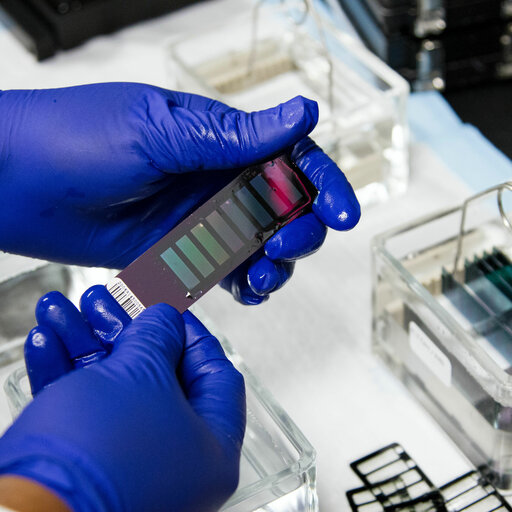Pashayan et al., 2020
ENVISION is a network of several international research consortia tackling breast cancer, the worldwide second most commonly diagnosed cancer. As an outcome of a conference held in 2019 in Hall in Tirol (Austria), the call for a more personalized detection and prevention was brought forward in a consensus statement.
At present, in most countries the only entry criterion for early detection programmes is age. Although the majority of breast cancers (75%) in high-income countries are diagnosed in postmenopausal women, there is still a considerable number of cases (5-7%) detected in women below the age of 40 years, indicating that more sensitive and tailored strategies for prevention may be needed. A future perspective is the increasing our understanding of cancer on an individual level. A good example for where a deeper understanding has helped preventive efforts are the pathogenic mutations of the genes BRCA1 and BRCA2: research has shown that these mutations lead to a higher risk for aggressive breast cancer. However, BRCA1/2 mutation carriers may opt for the to date the most effective treatment - bilateral masectomy (removal of both breasts) - with an overall complication rate of 22.3%. Genetic testing remains somewhat restricted to women with a familial history of breast cancer or other familial cancer history, though the knowledge of genetic mutation status could offer an improved chance for preventing the cancer, recent research indicates for example the prevention in BRAC1/2-associated cancer by inhibition of the progesterone pathway or preventive nutrition (folic acid, vitamin B12).
Breast cancer itself is a complex disease with several subtypes, different risk profiles and responses to treatment. Detection is important, yet ultra-low-risk or slow growing cancer have to be recognized as such, otherwise they carry the risk of a more severe intervention than necessary (e.g.: removal of breasts when cancer may never even become “invasive” or clinically relevant), thus showing the need for better and more subtype-specific predictions to enable treatments with the right severity.
There exist several genetic risk prediction models based on a huge amount of genetic data, though mostly European ancestries. These should be expanded to all ancestries, as non-European ancestries are understudied to date.
A very promising additional tool for individualized prediction is looking at DNA methylation rather than just mutation status. DNA methylation is an extra layer of information superimposed on the DNA, inherited and also modified throughout life by ageing, nutrition, exercise, socio-economic status, obesity, smoking, exposure to hormones and chemicals - and also in cancer!






